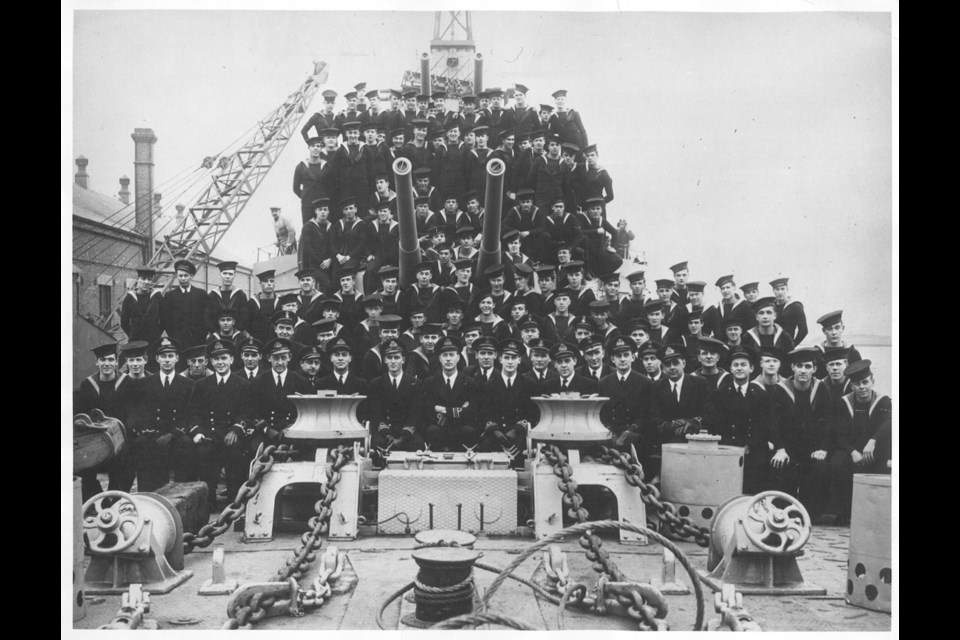HMCS Athabaskan, a destroyer in the Royal Canadian Navy, was laying mines in preparation for D-Day landings when it was torpedoed on April 29, 1944.
One of those who died in the sinking was the ship’s captain, Lt.-Cmdr. John Stubbs of Kaslo, who spent time at Royal Roads when it was a naval college. His name is also memorialized in Colwood at École John Stubbs Memorial School.
“So we have two schools on the West Shore that are connected to the same ship,” said Geoffrey Bird, Royal Roads professor of culture and history, who is also part of the Royal Roads War Heritage Research Initiative.
The 75th anniversary of the sinking was commemorated Monday at Royal Roads University, where a wreath was laid at a small cenotaph in the university’s Italian garden.
On the Athabaskan’s last mission, she was sent to lay mines near the coast of Brittany, in France, to protect the English Channel prior to the invasion in Normandy. During the night, however, the ship was torpedoed.
Her fellow Canadian vessel HMCS Haida stopped for a short time to rescue survivors. But the protective dark was passing fast.
“Dawn was breaking and there was fear of an enemy attack and Haida was sitting dead still in the water and so she had to leave the crew of the Athabaskan in the water,” said Bird.
According to online information from CFB Esquimalt Naval and Military Museum, even Stubbs recognized the danger and shouted to Haida to go.
“Get away Haida, get clear,” he is reported to have shouted from the water.
Stubbs, who had been badly burned in the explosions on Athabaskan, was last seen clinging to a life raft and later found dead. He was awarded the Distinguished Service Cross after death.
His body now lies in a Commonwealth War Graves Cemetery in Plouescat, France, with most of the 128 Athabaskan sailors who died that night.
Haida was able to rescue 44 crew members, and German naval vessels pulled 83 from the water as prisoners of war.



